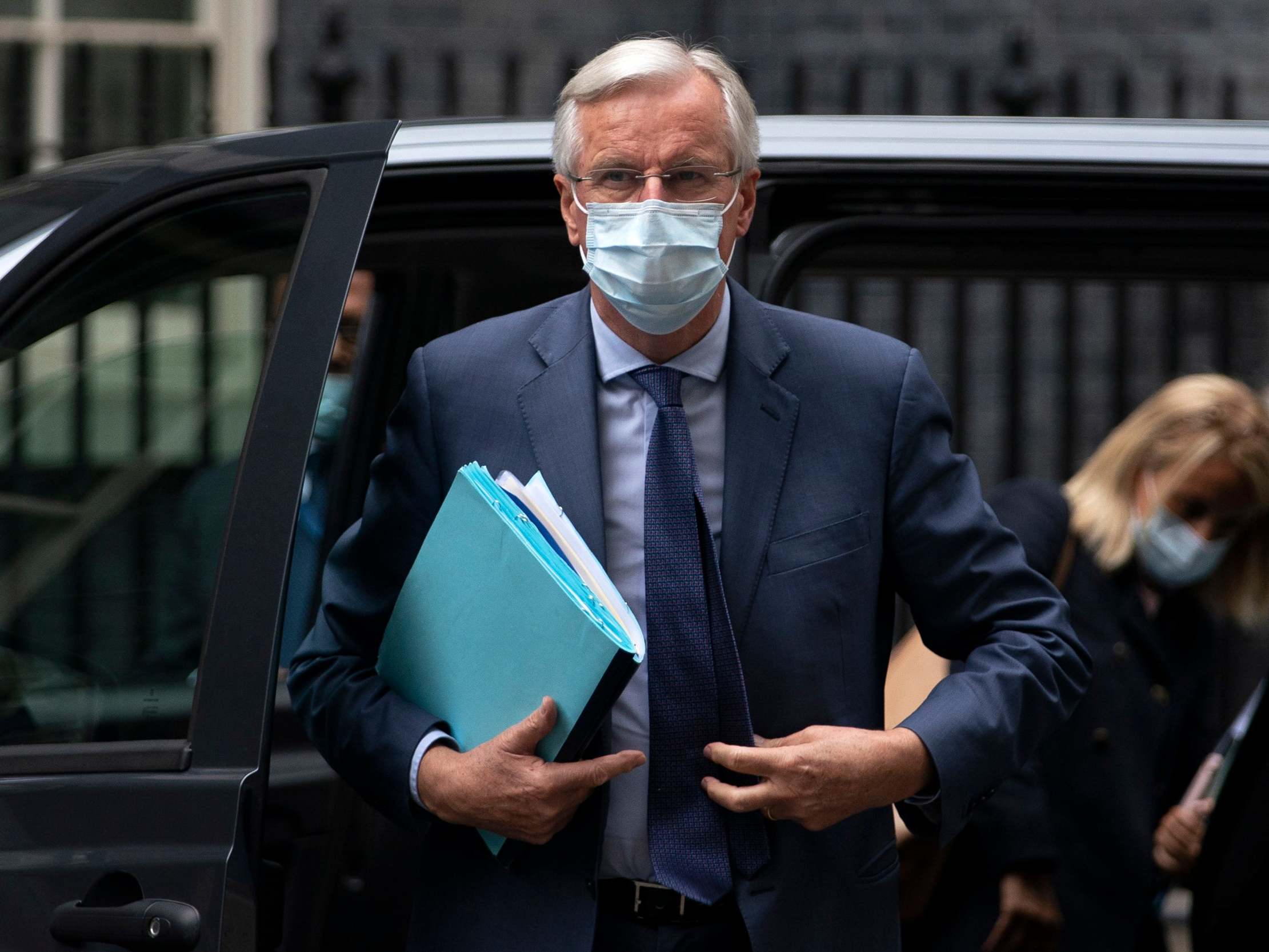Your support helps us to tell the story
From reproductive rights to climate change to Big Tech, The Independent is on the ground when the story is developing. Whether it's investigating the financials of Elon Musk's pro-Trump PAC or producing our latest documentary, 'The A Word', which shines a light on the American women fighting for reproductive rights, we know how important it is to parse out the facts from the messaging.
At such a critical moment in US history, we need reporters on the ground. Your donation allows us to keep sending journalists to speak to both sides of the story.
The Independent is trusted by Americans across the entire political spectrum. And unlike many other quality news outlets, we choose not to lock Americans out of our reporting and analysis with paywalls. We believe quality journalism should be available to everyone, paid for by those who can afford it.
Your support makes all the difference.Brexit trade talks have broken up early for the week as the EU's chief negotiator warned that "significant divergences" remain between the two sides.
Michel Barnier said talks would continue later this month but issued a formal communication to EU national governments urging them to prepare for disruption at the end of the year, as no-deal looms.
Informal discussions were held in London as opposed to Brussels this week for the first time, with Mr Barnier and his officials arriving by train in time for dinner with UK negotiator David Frost on Tuesday.
The teams were then expected to hold negotiations on Wednesday and Thursday, but broke up before lunchtime on the second day. Downing Street said the short discussions were "always due to be an informal round of talks".
"This week’s discussions confirm that significant divergences remain between the EU and UK. We will continue working with patience, respect and determination," Michel Barnier said at the close of talks. He added: "Regardless of the outcome, there will be inevitable changes on 1/1/21."
In an official EU communication released to coincide with the close of discussions, the European Commission said that "negotiations so far have shown little progress" and said member states and businesses should revisit their preparedness plans.
As well as the threat of a no-deal if no agreement can be reached by the autumn, the Commission reiterated that a decision by the UK government to downgrade its trade access by leaving the single market as well as the EU substantial extra bureaucracy at borders even in the event of a free trade agreement.
It warned that "the choices made by the United Kingdom’s government on the future relationship and on not extending the transition period mean that these inevitable disruptions will occur as of 1 January 2021 and risk compounding the pressure that businesses are already under due to the COVID-19 outbreak".
"This Communication in no way seeks to prejudge the outcome of negotiations, nor to examine the possible implications of a failure to reach an agreement on a future partnership," it said.
"Instead, it aims to highlight the main areas of inevitable change and to facilitate readiness and preparations by citizens, public administrations, businesses and all other stakeholders for these unavoidable disruptions.
"In particular, businesses should consider revisiting their existing preparedness plans. Although these were drawn up for the risk of the UK’s withdrawal from the Union without a withdrawal agreement – a scenario which did not materialise – part of that work will still be very relevant for the changes at the end of the transition period."
The Commission also said it would be review the 102 "stakeholder notices" that it published to give businesses extra information about changes after Brexit. 51 of the notices have been updated so far, Brussels says.
Both sides say they want a deal to be reached by autumn, to leave time for ratification before the end of the year when the Brexit transition period will end. If no deal is reached the UK will face high tariff barriers to EU exports and onerous customs controls.
If a deal is reached most tariffs would likely be eliminated but trade would still face extra bureaucracy at the borders. Both outcomes are expected to be economically disruptive.

Join our commenting forum
Join thought-provoking conversations, follow other Independent readers and see their replies
Comments